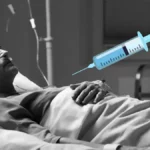Blog Post
A simple guide to discussing assisted suicide
By Jonathon Van Maren
Since the publication of A Guide to Discussing Assisted Suicide, which I co-authored with my colleague Blaise Alleyne, we’ve gotten fantastic feedback from members of the medical community about how valuable the book was in helping them frame their arguments and persuade people to oppose assisted suicide and euthanasia. Earlier this week, I received this very encouraging e-mail from a Canadian student:
I am currently a second-year nursing student. I just wanted to thank you for your book A Guide to Discussing Assisted Suicide. One of my theory classes just hosted an in-class debate on the ethics of MAiD, where the for/against positions were randomly assigned.
Although I was relieved to be assigned to the “against” team as team captain, the vast majority of my team was not. As someone who is by principle against MAiD and euthanasia I figured this might be my only chance to convince future members of the health care profession that there are too many fallacies with their notion of “autonomy.” I read your book front to back twice to absorb how many of the arguments were phrased and shared the video of your presentation at last year’s Canadian Physicians for Life conference with a few open-minded team members.
As well as the 64 students participating in the debate, there were 3 professor “judges” from “across the political spectrum” and a handful of faculty members that came to listen in. My instructor took an anonymous poll to see what the real opinions of students were prior to the debate; it showed that 80% of the class voted for MAiD and only 20% voted against. The winner would be determined by whichever side was able to increase its percentage.
Thanks to studying the arguments in your book my “against” team managed to increase our percentage from 20% to 33%, thereby winning the debate. Two of the faculty judges changed their opinion completely and voted against MAiD. Upon talking to my classmates later I found out that many who voted “for” the second time round simply voted out of the inability to vote for an “undecided” option. While 13% is admittedly not a huge victory in the “for life” cause, I am nevertheless hopeful as I learned that my peers in health care are starting to crave free academic debate, especially in a set of professions where disagreeing with a board or college could cost job opportunities.
Inspired by this, I’m planning on studying Biomedical Ethics in the next semester and am looking forward to continue challenging the worst of our status quo.
We’re thrilled that this resource is being utilized so effectively. If you’d like to get your own copy, you can do so here.








